第9章 The Hunger for Self-Education (1)
With school-days ended, the question of self-education became an absorbing thought with Edward Bok.He had mastered a schoolboy's English, but seven years of public-school education was hardly a basis on which to build the work of a lifetime.He saw each day in his duties as office boy some of the foremost men of the time.It was the period of William H.Vanderbilt's ascendancy in Western Union control; and the railroad millionnaire and his companions, Hamilton McK.Twombly, James H.Banker, Samuel F.Barger, Alonzo B.Cornell, Augustus Schell, William Orton, were objects of great interest to the young office boy.Alexander Graham Bell and Thomas A.Edison were also constant visitors to the department.He knew that some of these men, too, had been deprived of the advantage of collegiate training, and yet they had risen to the top.
But how? The boy decided to read about these men and others, and find out.He could not, however, afford the separate biographies, so he went to the libraries to find a compendium that would authoritatively tell him of all successful men.He found it in Appleton's Encyclopedia, and, determining to have only the best, he saved his luncheon money, walked instead of riding the five miles to his Brooklyn home, and, after a period of saving, had his reward in the first purchase from his own earnings: a set of the Encyclopedia.He now read about all the successful men, and was encouraged to find that in many cases their beginnings had been as modest as his own, and their opportunities of education as limited.
One day it occurred to him to test the accuracy of the biographies he was reading.James A.Garfield was then spoken of for the presidency;Edward wondered whether it was true that the man who was likely to be President of the United States had once been a boy on the tow-path, and with a simple directness characteristic of his Dutch training, wrote to General Garfield, asking whether the boyhood episode was true, and explaining why he asked.Of course any public man, no matter how large his correspondence, is pleased to receive an earnest letter from an information-seeking boy.General Garfield answered warmly and fully.
Edward showed the letter to his father, who told the boy that it was valuable and he should keep it.This was a new idea.He followed it further: if one such letter was valuable, how much more valuable would be a hundred! If General Garfield answered him, would not other famous men? Why not begin a collection of autograph letters? Everybody collected something.
Edward had collected postage-stamps, and the hobby had, incidentally, helped him wonderfully in his study of geography.Why should not autograph letters from famous persons be of equal service in his struggle for self-education? Not simple autographs--they were meaningless; but actual letters which might tell him something useful.
It never occurred to the boy that these men might not answer him.
So he took his Encyclopedia--its trustworthiness now established in his mind by General Garfield's letter--and began to study the lives of successful men and women.Then, with boyish frankness, he wrote on some mooted question in one famous person's life; he asked about the date of some important event in another's, not given in the Encyclopedia; or he asked one man why he did this or why some other man did that.
Most interesting were, of course, the replies.Thus General Grant sketched on an improvised map the exact spot where General Lee surrendered to him; Longfellow told him how he came to write "Excelsior"; Whittier told the story of "The Barefoot Boy"; Tennyson wrote out a stanza or two of "The Brook," upon condition that Edward would not again use the word "awful," which the poet said "is slang for 'very,'" and "I hate slang."One day the boy received a letter from the Confederate general Jubal A.
Early, giving the real reason why he burned Chambersburg.A friend visiting Edward's father, happening to see the letter, recognized in it a hitherto-missing bit of history, and suggested that it be published in the New York Tribune.The letter attracted wide attention and provoked national discussion.
This suggested to the editor of The Tribune that Edward might have other equally interesting letters; so he despatched a reporter to the boy's home.This reporter was Ripley Hitchcock, who afterward became literary adviser for the Appletons and Harpers.Of course Hitchcock at once saw a "story" in the boy's letters, and within a few days The Tribune appeared with a long article on its principal news page giving an account of the Brooklyn boy's remarkable letters and how he had secured them.The Brooklyn Eagle quickly followed with a request for an interview; the Boston Globe followed suit; the Philadelphia Public Ledger sent its New York correspondent; and before Edward was aware of it, newspapers in different parts of the country were writing about "the well-known Brooklyn autograph collector."Edward Bok was quick to see the value of the publicity which had so suddenly come to him.He received letters from other autograph collectors all over the country who sought to "exchange" with him.
References began to creep into letters from famous persons to whom he had written, saying they had read about his wonderful collection and were proud to be included in it.George W.Childs, of Philadelphia, himself the possessor of probably one of the finest collections of autograph letters in the country, asked Edward to come to Philadelphia and bring his collection with him--which he did, on the following Sunday, and brought it back greatly enriched.